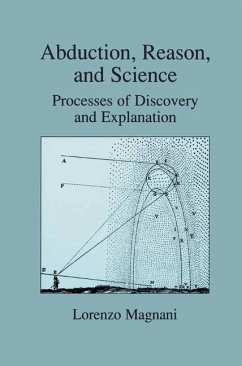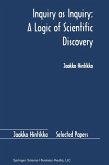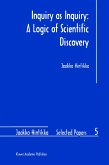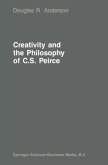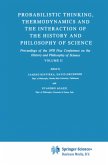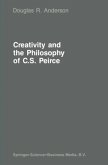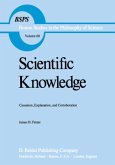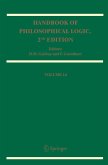This book ties together the concerns of philosophers of science and AI researchers, showing for example the connections between scientific thinking and medical expert systems. It lays out a useful general framework for discussion of a variety of kinds of abduction. It develops important ideas about aspects of abductive reasoning that have been relatively neglected in cognitive science, including the use of visual and temporal representations and the role of abduction in the withdrawal of hypotheses.
This volume explores abduction (inference to explanatory hypotheses), an important but neglected topic in scientific reasoning. My aim is to inte grate philosophical, cognitive, and computational issues, while also discuss ing some cases of reasoning in science and medicine. The main thesis is that abduction is a significant kind of scientific reasoning, helpful in delineating the first principles of a new theory of science. The status of abduction is very controversial. When dealing with abduc tive reasoning misinterpretations and equivocations are common. What are the differences between abduction and induction? What are the differences between abduction and the well-known hypothetico-deductive method? What did Peirce mean when he considered abduction a kind of inference? Does abduction involve only the generation of hypotheses or their evaluation too? Are the criteria for the best explanation in abductive reasoning epis temic, or pragmatic, or both? How many kinds of abductionare there? The book aims to increase knowledge about creative and expert infer ences. The study of these high-level methods of abductive reasoning is situ ated at the crossroads of philosophy, epistemology, artificial intel1igence, cognitive psychology, and logic; that is, at the heart of cognitive science. Philosophers of science in the twentieth century have traditionally distin guished between the inferential processes active in the logic of discovery and the ones active in logic of justification.
This volume explores abduction (inference to explanatory hypotheses), an important but neglected topic in scientific reasoning. My aim is to inte grate philosophical, cognitive, and computational issues, while also discuss ing some cases of reasoning in science and medicine. The main thesis is that abduction is a significant kind of scientific reasoning, helpful in delineating the first principles of a new theory of science. The status of abduction is very controversial. When dealing with abduc tive reasoning misinterpretations and equivocations are common. What are the differences between abduction and induction? What are the differences between abduction and the well-known hypothetico-deductive method? What did Peirce mean when he considered abduction a kind of inference? Does abduction involve only the generation of hypotheses or their evaluation too? Are the criteria for the best explanation in abductive reasoning epis temic, or pragmatic, or both? How many kinds of abductionare there? The book aims to increase knowledge about creative and expert infer ences. The study of these high-level methods of abductive reasoning is situ ated at the crossroads of philosophy, epistemology, artificial intel1igence, cognitive psychology, and logic; that is, at the heart of cognitive science. Philosophers of science in the twentieth century have traditionally distin guished between the inferential processes active in the logic of discovery and the ones active in logic of justification.

